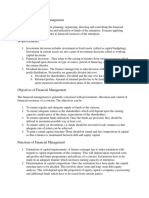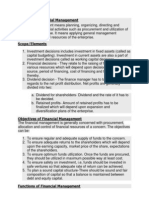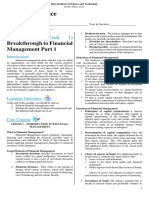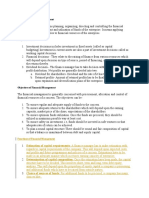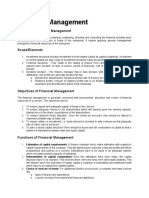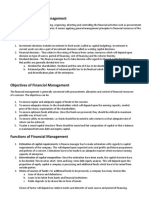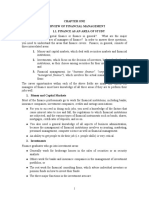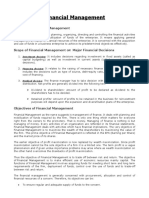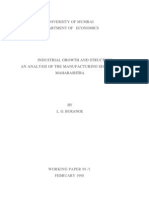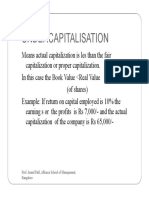0% found this document useful (0 votes)
8 views4 pagesFinMan Topic #1
The document outlines the objectives and functions of financial management, emphasizing the importance of fund procurement, allocation, and control. Key objectives include ensuring adequate funding, optimizing fund utilization, and planning a sound capital structure. The role of a financial manager is highlighted, focusing on raising and allocating funds, managing cash, and understanding capital markets to enhance profitability and growth.
Uploaded by
David AngeloCopyright
© © All Rights Reserved
We take content rights seriously. If you suspect this is your content, claim it here.
Available Formats
Download as PDF, TXT or read online on Scribd
0% found this document useful (0 votes)
8 views4 pagesFinMan Topic #1
The document outlines the objectives and functions of financial management, emphasizing the importance of fund procurement, allocation, and control. Key objectives include ensuring adequate funding, optimizing fund utilization, and planning a sound capital structure. The role of a financial manager is highlighted, focusing on raising and allocating funds, managing cash, and understanding capital markets to enhance profitability and growth.
Uploaded by
David AngeloCopyright
© © All Rights Reserved
We take content rights seriously. If you suspect this is your content, claim it here.
Available Formats
Download as PDF, TXT or read online on Scribd
/ 4
